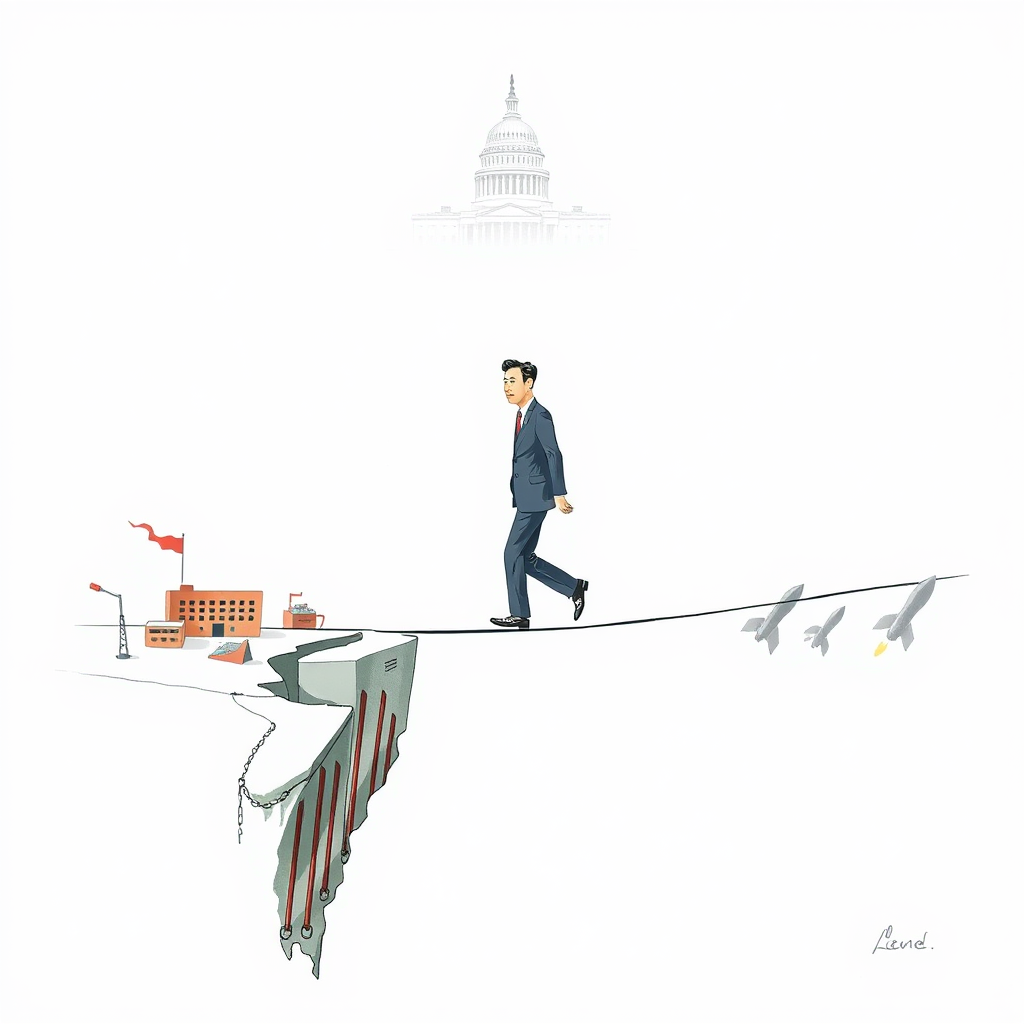South Korea’s New Leader Faces Steep Challenges

Lee Jae-myung’s victory in South Korea’s recent snap election, triggered by the impeachment of his predecessor Yoon Suk-yeol, offers a fragile hope for stability in a deeply fractured nation. While the margin – nearly 49% of the vote – suggests a clear mandate, the path ahead for the new President is fraught with challenges, both domestic and international. Yoon’s declaration of martial law following legislative deadlock plunged the country into turmoil, and Lee inherits a nation grappling with economic stagnation, a plummeting birth rate, and intense political polarization.
Lee’s political evolution – from a progressive advocate skeptical of the U.S. to a more pragmatic moderate – is striking. His overtures to Washington, including praise for Donald Trump, represent a significant departure from traditional Democratic Party orthodoxy and signal a willingness to prioritize security alliances. This shift, while pragmatic, could alienate segments of his base.
Domestically, Lee faces a daunting to-do list. Reviving a sluggish economy, addressing a cost of living crisis, and tackling record youth unemployment are paramount. The education system is in crisis, with teachers leaving in droves and classrooms emptying. Beyond economics, Lee must navigate a deeply divided society, scarred by years of political infighting and mistrust. His campaign rhetoric, while effective in securing victory, often employed divisive language, painting opponents as “criminals” and warning of a descent into authoritarianism.
The shadow of North Korea looms large. Lee acknowledges the deteriorating security environment in Northeast Asia, citing Pyongyang’s escalating missile tests and nuclear ambitions. He rightly emphasizes the importance of the U.S.-South Korea alliance as a cornerstone of regional stability, but also recognizes the need for dialogue and eventual denuclearization. Restarting negotiations with Kim Jong Un, potentially with the involvement of the U.S., will be a delicate balancing act.
However, Lee’s presidency is immediately clouded by legal challenges. Embroiled in a slew of criminal cases – bribery, election law violations, and a property development scandal – he faces the very real possibility of disqualification. The Democratic Party’s attempts to shield him from prosecution during his term, while understandable from a political perspective, risk further exacerbating societal divisions and undermining the rule of law.
The South Korean political system itself is arguably broken. The single five-year presidential term, coupled with a frequently obstructionist legislature, creates a cycle of paralysis and instability. Lee’s proposal to amend the constitution to allow two four-year terms, mirroring the U.S. system, is a sensible one, but faces significant opposition.
Lee’s victory offers a moment of potential renewal for South Korea. But his success hinges on his ability to bridge deep divides, deliver on economic promises, and navigate a treacherous legal and political landscape. The challenges are immense, and the stakes are high. While Lee’s commitment to avoiding “retaliation” is laudable, his rhetoric often frames issues as “us versus them,” suggesting a turbulent period ahead. The nation’s longing for stability is palpable, but whether Lee can deliver remains to be seen. The coming months will be critical in determining whether his presidency represents a genuine turning point or simply another chapter in South Korea’s ongoing political drama.